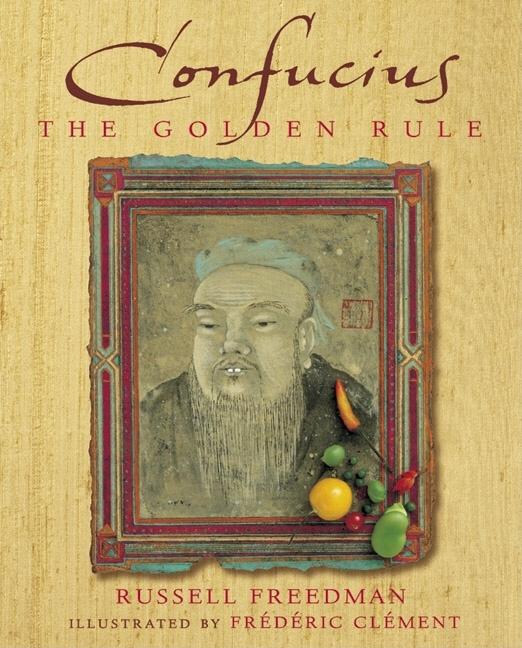Book Description
for Confucius by Russell Freedman and Frederic Clement
From Cooperative Children's Book Center (CCBC)
Russell Freedman’s compelling biography of the great Chinese teacher and philosopher draws on fact and legend, and separates these from myths about Confucius that have often seen his thoughtful ruminations reduced to jokes in popular culture. Noting that little is known about the actual events of Confucius’s life, Freedman relies heavily on sources that have distilled what seems most reliable. The author’s voice is an important part of the narrative, informing readers of what is known versus what is conjectured and still drawing a vivid portrait of a warm, intelligent, humorous teacher whose passion for education was linked in part to his desire for governmental reform. A minor governmental official himself, Confucius believed education should be open to boys and young men all classes, not just the nobility, as a means of opening the doors of leadership to all who had something to offer. An author’s note describing Freedman’s own trip to China to research the life of Confucius, and sources for further reading, round out this elegant volume that is artfully designed and illustrated. (Ages 10-14)
CCBC Choices 2003 . © Cooperative Children's Book Center, Univ. of Wisconsin - Madison, 2003. Used with permission.


